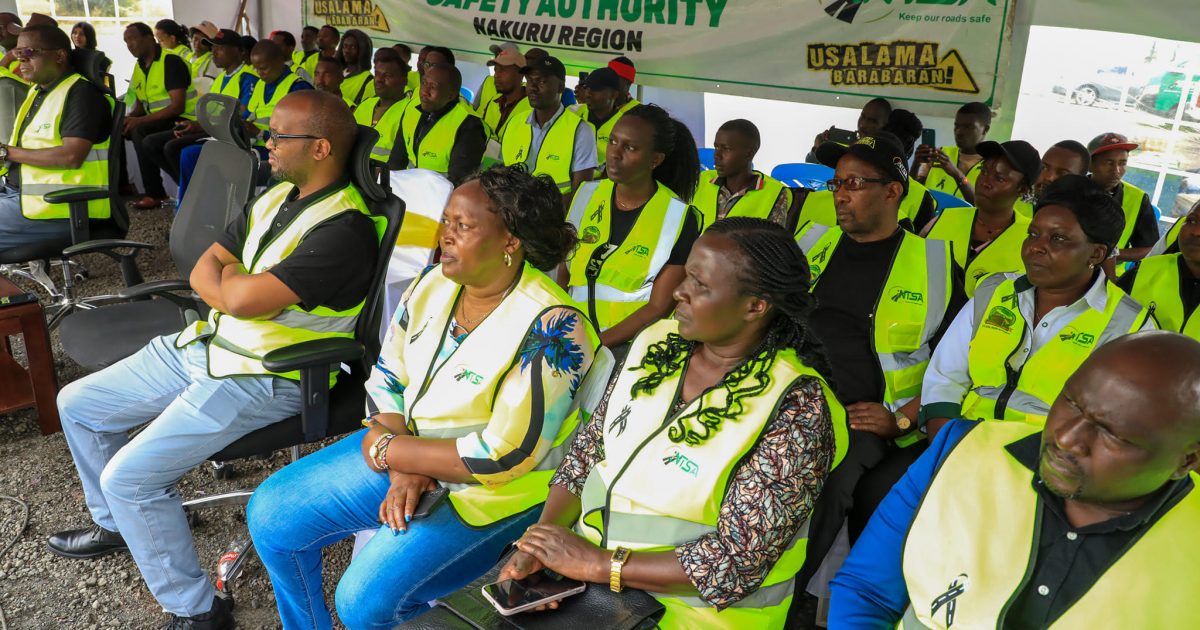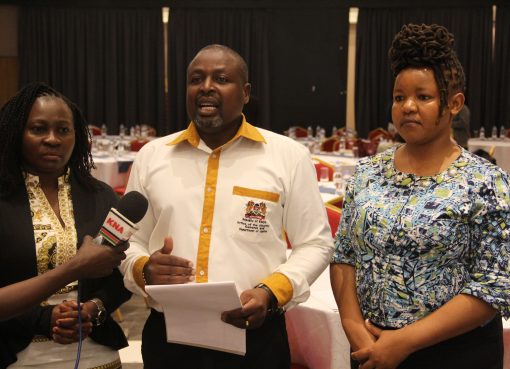A road safety programme targeting boda boda riders has been unveiled in Nakuru in light of numerous road accidents in the area.
At least 100 motorcycle riders from the Nakuru Town East and Nakuru Town West Sub-Counties have so far benefited from the initiative designed to reduce road-related accidents and promote community development.
The initiative targets 1,500 riders across the devolved unit’s 11 sub counties.
The training, in collaboration with the National Transport and Safety Authority (NTSA), covers critical topics such as traffic rule compliance, proper protective gear, defensive driving techniques and motorcycle maintenance and inspection.
Deputy Governor David Kones disclosed that the riders and an additional 20 individuals had also been trained on first aid to boost the county’s first responder capacity.
Kones stated that the initiative leverages the widespread presence of boda boda riders to provide swift first aid assistance in the event of road accidents and other emergencies, adding that the survival rate of accident victims significantly depends on the speed of emergency care.
“An ambulance will delay, so we need the support from these boda boda riders, who are at the scene to start the initial care and increase chances of survival. This kind of training is going to save more lives,” he said.
With over 100,000 riders in Nakuru, these individuals are ideally positioned to provide immediate assistance at accident scenes.
The Deputy Governor noted, “Accidents on the road are common, but often boda boda operators find themselves helpless, merely observing or bypassing the scene due to their lack of essential skills to provide help.”
“This training is set to make a significant impact. As more riders become proficient in first aid, we can expect a rise in the number of lives saved that might otherwise have been lost,” the DG added.
The comprehensive training program covered critical areas such as bleeding, fractures, CPR, burn treatment, spine injuries, and preventing infections.
Boda boda riders who complete the training will be equipped with specially crafted first aid kits that fit neatly into their motorbikes, ensuring they are always prepared to provide essential care.
On road safety training, he noted that road carnage has significantly impacted many riders, adding that the exercise comes amid rising concerns over road safety, as statistics from the NTSA show that 4,047 people have already lost their lives on Kenyan roads this year, marking a 9 percent increase compared to the same period last year.
“Governor Susan Kihika’s administration has taken proactive measures to address this alarming trend, including training 100 Boda Boda riders and 20 fast responders.
These individuals are now equipped with skills to handle emergencies and contribute to improving road safety in the county. Additionally, 10 traffic marshals have been deployed to assist schoolchildren in crossing busy roads, ensuring their safety,” elaborated the Deputy Governor.
He noted that road safety should be a shared responsibility and urged drivers to avoid the dangerous mindset that safety is someone else’s concern.
“I urge all of us to do better planning to avoid speeding. You would rather arrive late than speed and not arrive at all,” the Deputy Governor said.
Present during launch of the training program included the County Executive Committee Member (CECM) for Roads and Infrastructure, Eng. James Kamau, Chief Officer for Gender, Social Services and Inclusivity Gladys Kamuren and NTSA Director Paul Posho.
Others were NTSA Regional Manager Joseph Gichohi, Deputy County Commissioner Ali Noor, representative of the County Commander, Allan Ogolla, Rachael Maru (Road safety Champion) and other stakeholders working in the road safety sector.
Riders were also educated on the importance of attending riding classes and obtaining the necessary licenses from NTSA.
Posho highlighted the significance of training boda boda riders on road safety, given the sector’s role in the country’s economic growth.
“NTSA is cognizant of the boda boda sector’s importance in driving the country’s economy. A well-trained rider is more productive and less at risk of road accidents,” the director said, promising to continue road safety training sessions in the region.
By Jane Ngugi



